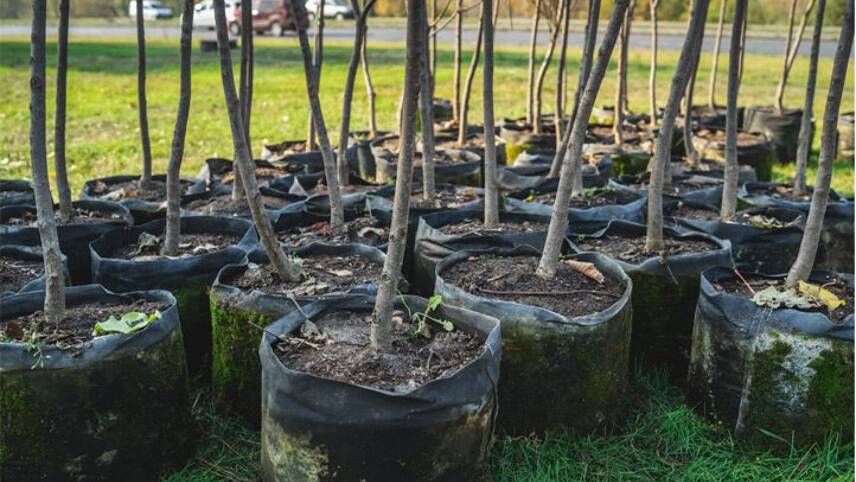Register for free and continue reading
Join our growing army of changemakers and get unlimited access to our premium content

That is one of the key calls to action from think tank Green Alliance, in a new report supported by Heathrow Airport.
Entitled ‘the flight-path to net-zero: making the most of nature-based carbon offsetting’, the report highlights previous analyses concluding that 73% of carbon credits created under the UN’s Clean Development Mechanism, in its current form, are unlikely to lead to real-world carbon removal or mitigation.
This gap between offsetting claims and reality, Green Alliance explains, is likely down to a combination of inaccurate data on both real-world implementation and the effectiveness of certain practices; double-counting; and unintended negative consequences on issues such as biodiversity.
The report sets out how this challenge could be solved by collaborative, joined-up action on prioritising in-house decarbonisation over offsetting, and on spurring greater investment in nature-based carbon sequestration domestically. On the latter, the shorter the value chain is, the easier it is to audit. Collaboration on both issues must include national Government, businesses, offsetting scheme providers and bodies such as the UN’s International Civil Aviation Organisation (ICAO) Council, which runs the Carbon Offsetting and Reduction Scheme for International Aviation (CORSIA).
CORSIA rules are set to be tightened in January 2021, at which point older and smaller carbon offsetting schemes will be excluded from the list of permitted sources. Even with this change, the Green Alliance report concludes, CORSIA will not be ambitious enough to align the aviation sector – a key focus in the offsetting debate, considering that no net-zero technical solutions are expected to be implemented at scale in the coming decades – with the Paris Agreement’s 1.5C trajectory.
In order to overcome the shortcomings of existing schemes, the report concludes, the UK Government should set up an office tasked solely with verifying and overseeing offsetting, both to ensure that supported projects are high-quality and generate additional removal or mitigation and to enforce limits on how many nature-based credits any one sector or business can buy.
The latter recommendation has been made to ensure that no one hard-to-abate sector purchases so many credits that others are not able to access the amount they need to align with net-zero by 2050. At current levels, Green Alliance warns, aviation may buy up so many credits that agriculture will not be able to access sufficient amounts. Airlines are expected to spend between £4bn and £18bn on offsetting globally, on a cumulative basis, by 2035.
Cut then calculate
Mindful of the fact that green campaigners have long accused sectors such as aviation, oil and gas for using offsetting as “get-out-of-jail-free” cards – technically complying with climate targets without investing in operational transitions – the Green Alliance report makes one further recommendation.
It urges Ministers, in their development of the UK’s Net-Zero Roadmap, to create sector-specific targets for both emissions reductions and emissions removals.
Aviation, for example, should seek to bring its emissions down by 42% by 2050 and not rely on offsetting for more than 58% of current levels. Other sectors where technological solutions either exist at scale or are predicted to scale up in the next decade are likely to be mandated to reduce emissions further.
It is worth noting here that several businesses have repeatedly and vocally advocated for a reductions-first approach to decarbonisation, in which offsetting plays either a minority, residual or non-existent role. Among this cohort are Philip Morris International, ITV and Skanska UK.
But the delivery of a 1.5C or net-zero world, as the IPCC has repeatedly emphasised, will require action not only from those already leading, but all of society, including the current laggards – a point which Green Alliance emphasises in its report. In order to ensure that all businesses play their part in the transition in terms of reduction, the report recommends the implementation of a national carbon price. Even at a low price of around £10 per tonne, £87m per year would be generated and should be earmarked for natural sequestration, it concludes.
“Offsetting has become a dirty word for environmentalists because of bad carbon credit schemes and the risk it will be used as an excuse to keep polluting,” Green Alliance’s policy adviser James Elliott said.
“But when you look at the numbers, it’s obvious we have to remove and store a huge amount of CO2 from the atmosphere if we are to reach net-zero and avoid the worst impacts of climate change. Boosting tree planting and low carbon farming, alongside developing other carbon removal technologies, like bioenergy with carbon capture and storage, is an urgent priority.”
The Green Alliance report also explains why avoiding offsetting altogether would not be the wisest move, both in terms of climate science and policy and in the context of the current coronavirus outbreak. It touts funds raised for domestic offsetting – through carbon pricing or otherwise – as a new source of green funding that will assist the UK’s economic recovery and build on the Government’s recently-announced £640m Nature for Climate Fund.
Sarah George


Please login or Register to leave a comment.